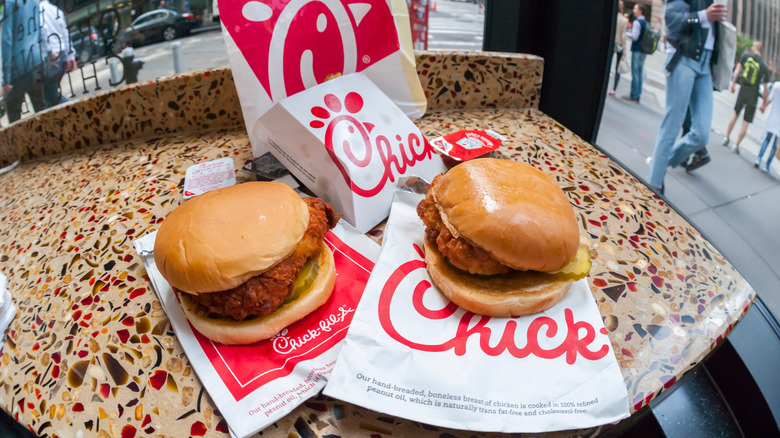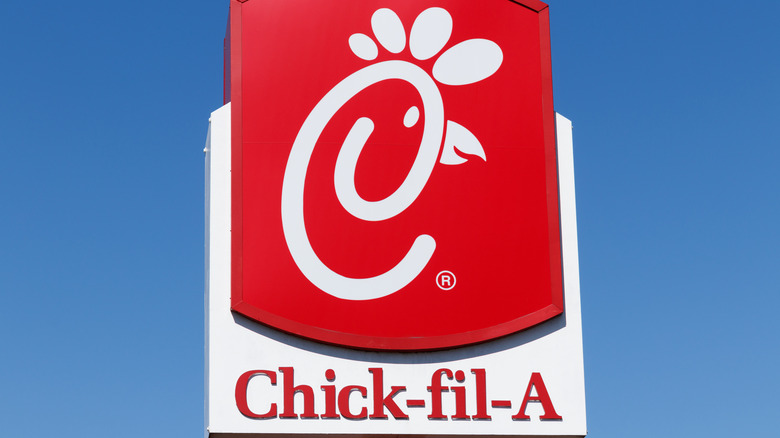Why Twitter Is Imploding Over Chick-Fil-A And The CERN Hadron Collider
We may receive a commission on purchases made from links.
With WWII over, veteran Truett Cathy decided to open a little diner in an Atlantan suburb called the Dwarf Grill in 1946, per the Chick-fil-A website. The Dwarf Grill became famous for its chicken sandwich, and Chick-fil-A was born. Cathy registered the name in 1964, and in the 60 years since, it's become the second-largest fast-food restaurant in the United States, per Zippia.
In Cathy's 2002 book "Eat Mor Chikin: Inspire More People," he says he struggled to come up with a name he could trademark for his famous chicken sandwich. "It occurred to me that the best cut of beef is a fillet; why not call ours a chicken fillet? Or chick fillet? Or Chick-fil-A?" Cathy wrote (via Business Insider). The logo — with the C forming an image of a chicken — was created shortly after and has remained similar throughout the years, per the Chick-fil-A website.
The Chick-fil-A logo is recognizable to most people in the United States. But a July 7 Twitter post made some fans stop and wonder if the chicken chain had actually changed it.
Collective memory or the Mandela effect?
Twitter user Chris Abercrombie asked an important question of Chick-fil-A, writing, "When did you add the K to Chick? We all remember Chic-Fil-A." Twitter user @shethtlivesnme replied, "Exactly! Like, they snuck that in. I knew I wasn't the only one thinking that." @Ashurah said, "Yep, I remember that. I knew I wasn't cray." And @@Mknight367 replied, "... It was always Chic! Definitely not Mandela, we jumped dimensions when CERN put the Hadron Collider into overload."
There may be many false things you believe about Chick-fil-A. But is "CERN put[ting] the Hadron Collider into overload," as one Twitter user suggested, one of them? Have we gone through a black hole and into an alternate universe, or is this a phenomenon known as the Mandela effect? According to Healthline, the Mandela effect was named when paranormal consultant Fiona Broome stated that she remembered Nelson Mandela dying in the prison in the '80s and even remembered media coverage of the event. Other people also believed they remembered the same event.
"Memory is influenced by different biases, perceptions, preconceptions, and expectations," neuropsychologist Dr. Aaron Bonner-Jackson explained to the Cleveland Clinic in May, speaking about the Mandela effect. "Just by giving some misleading information, people can actually believe they have a memory that is different than what actually happened." Whether or not that's what's going on with Chick-fil-A, though, is up for fans to decide.

